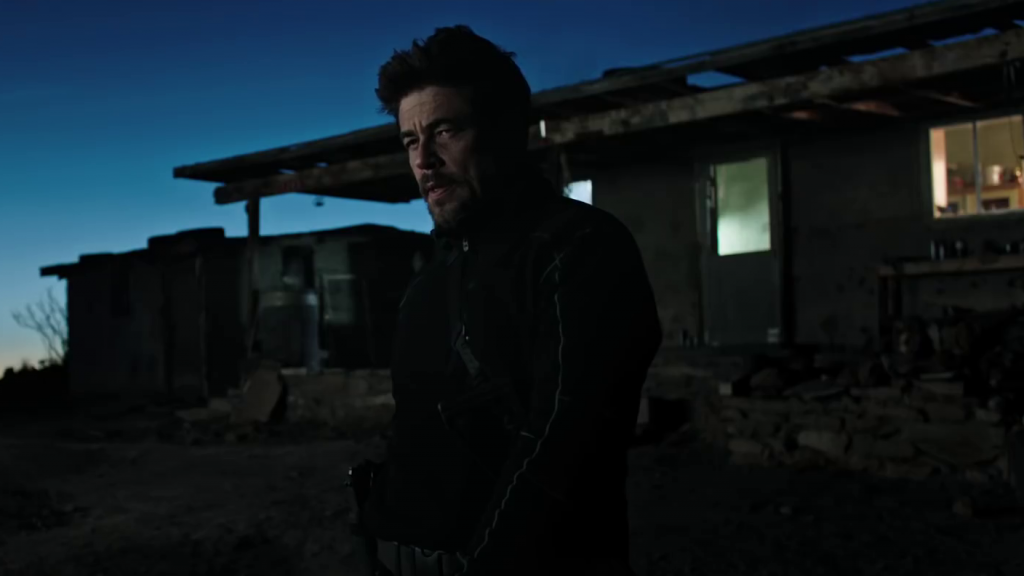Directed by Stefano Solima | Written by Taylor Sheridan | 122 min | Netflix
When I first got wind of a sequel to the Denis Villeneuve/Taylor Sheridan/Roger Deakins thriller Sicario, it seemed ill-advised. The original was so good, why try to recapture the magic? Especially with Villeneuve, Deakins, and the terrific Emily Blunt absent from the proceedings. I was somewhat encouraged that the Oscar-nominated Sheridan was back on script duties, and both Josh Brolin and Benicio Del Toro would be returning. The sequel is an effort that doesn’t entirely justify its existence, but is still a punchy and slick genre picture. It veers, occasionally, into western territory, before speeding back to its core as a dark and bloody drug cartel thriller. If that’s what you’re looking for, have at it.
The problem here is the Sicario sequel has no moral centre—the void in the film left by audience surrogate Blunt isn’t filled, leaving Brolin’s inexcusable black-ops bastard Matt and Del Toro’s revenge-driven Alejandro to carry our sympathies, which they were never designed to do.
The script’s nihilism is set at the film’s opening, with the borderline pornography of a scene of suicide bombers in a Kansas City grocery store. I get that this helps explain why the US government OKed an off-the-books mission to set Mexican cartels against one another, but it still feels pointlessly explicit, as well as a sop to Trump’s vision of “dangerous migrants.” The film turns out to be more sophisticated than the opening suggests, but still politically and narratively muddled.
A second act convoy into Mexico apes the sweaty tension of the Juarez mission in the first film, but the intent of the mission this time is a little unclear, and why Alejandro chooses to protect a cartel leader’s daughter (the impressive Isabela Moner) when he’s shown no compunction for killing children in the past is also not particularly well-explained, nor why he feels it necessary to escort her back to the United States when she could just call her father to come get her. This isn’t the only character or plot detail that’s either opaque or mishandled, and there’s more than one time the narrative goes off the rails, with the film falling back on its grimy mood and a couple of arresting, well-shot action set-pieces to keep the interest.
A parallel story of a 15-year-old Texan (Elijah Rodriguez) getting work with the cartels and bringing migrants across the river from Mexico helps provide some human context amongst the soulless operators. One of Sheridan’s gifts as a screenwriter is to incorporate the micro and the macro—profiting from the movement of people is juxtaposed with decisions made in the corridors of power, with Matthew Modine and Catherine Keener as Department of Defence managers.
But none of this matters if you’re left unmoved by the deep muddiness of it all, or maybe even despairing at it. When a key character eats a bullet late in the running, ask yourself if they had it coming. Then ask yourself if the film made you care one way or another.












